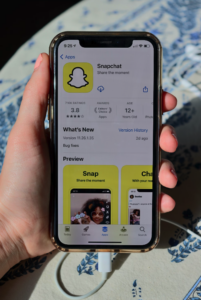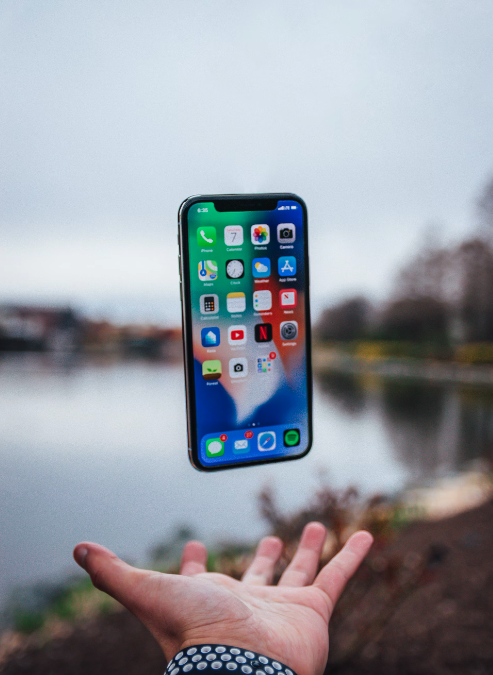Taking your teen’s phone away isn’t always the answer.
Typically, I do not advocate for a teenager to completely lose access to their phone and/or computer as a consequence for a disciplinary measure.
 It can alter behaviors out of compliance, but this can dramatically impact their social life and ability to stay connected with friends, which becomes even more vital over the holiday months. Teens living in more rural or isolated areas are especially impacted by loss of technology, as it can be harder for them to see friends in person, especially if they have yet to get their license or first car.
It can alter behaviors out of compliance, but this can dramatically impact their social life and ability to stay connected with friends, which becomes even more vital over the holiday months. Teens living in more rural or isolated areas are especially impacted by loss of technology, as it can be harder for them to see friends in person, especially if they have yet to get their license or first car.
Most parents can relate that teens are clever too…More often than not, they find a way to work around the loss of access to a phone or computer in places like the school classroom or library.
I’ve felt sarcastically at points that if K-12 schools want to make sure that their school devices are being used appropriately, they should have a tech team of students to help the adults understand how they get around what’s supposed to be disabled on devices like school computers and Ipads.

Taking a teen’s phone isn’t a universal answer to parental discipline, nor should it be viewed as such. Consistently, I have found teenagers to be confused by a parent going to the automatic, “I am taking your technology away because of blank,” even if the technology wasn’t a part of the behavior the parent identifies as concerning. Granted, if a child is being unsafe with their phone or using social media inappropriately, that may understandably entail a loss of tech privileges. Albeit, this should really come with a psychoeducational piece to reinforce a parent’s standpoint as an expert on their child’s life. I really encourage parents to do their own research on the effects of technology and social media on the teenage brain to reinforce talking points with their teens as a part of any consequence involving loss of tech privileges.
Consistently, I find my teenage clients frustrated by the seeming disconnect between a parental reaction to a behavior and the phone getting taken away.
I have found successes for families to have open dialogue about what behavioral consequences should be and establish those together. Ultimately that is up to the parent, but I have seen that successfully work to give teens an authentic voice in taking accountability for their mistakes instead of being disconnected from a consequence or punishment and not having an authentic learning experience. I believe that Jane Nelson puts logical consequences, or consequences planned as a result of a child’s behavior, in a helpful frame for parents…that they should be related, respectful, and reasonable.
- Related: Is this consequence connected to my child’s behavior?
- Respectful: Is the consequence communicated in an empathic and calm tone to my child?
- Reasonable: Is the consequence of an appropriate severity level to my child’s behavior?
Ironically, sometimes teens are more hyper aware of their parents behaviors than their own behaviors.
They can see the lack of congruence between their parents’ attitudes and their own behaviors. A frequently occurring question I get from my teens is, “Why is it that I have a limited amount of screen time but my parent(s) spends just as much time on their phone as I do?”
I think the thing that parents can do is evaluate their own relationships with technology as a part of the equation.

How does your relationship with your phone affect, either positively or negatively, the points that you are trying to drive home to your teen about consequences and relationships to technology?
I’d argue that we can all benefit from putting the phone down at the dinner table and leaving it downstairs before bed..Create an emphasis on community and connection for all of your home’s stakeholders.
Chris


